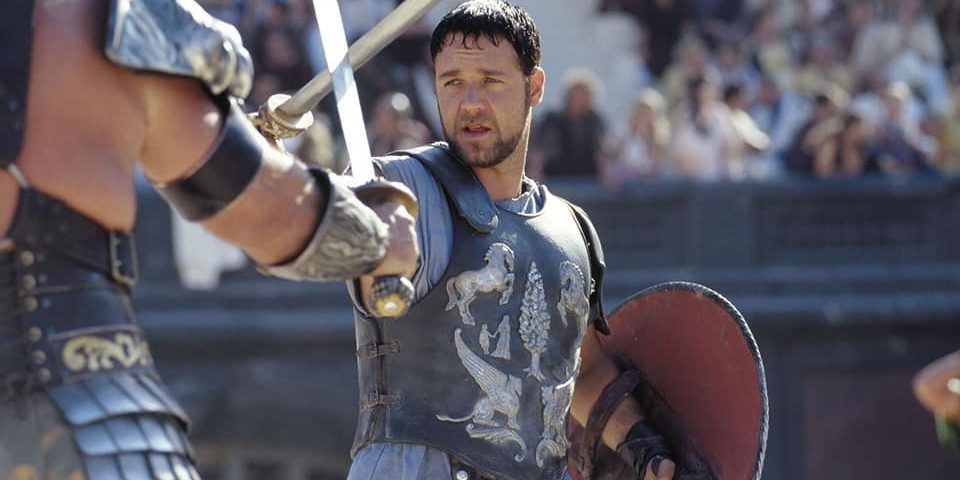“Gladiator” – Epic Spectacle of Honor and Revenge

Ridley Scott’s Gladiator (2000) stands as a towering achievement in the realm of historical epics, blending visceral action with profound themes of loyalty, vengeance, and the quest for redemption.
Set in ancient Rome during the reign of Emperor Marcus Aurelius, the film follows the journey of Maximus Decimus Meridius (Russell Crowe), a beloved general turned slave who rises to become a revered gladiator.

The story unfolds with Maximus leading the Roman army to victory against Germanic tribes, earning the admiration of Marcus Aurelius (Richard Harris). However, Maximus’s loyalty is betrayed by the power-hungry Commodus (Joaquin Phoenix), Marcus Aurelius’s son, who usurps the throne and orders Maximus’s execution. Escaping death, Maximus finds himself enslaved and forced into the brutal world of gladiatorial combat, where he seeks vengeance against Commodus and yearns to fulfill his vow to protect Rome and its people.

Gladiator is a visual spectacle, with Ridley Scott’s meticulous direction bringing ancient Rome to life with stunning authenticity and grandeur. The film’s elaborate sets, detailed costumes, and epic battle sequences immerse viewers in the glory and savagery of the Roman Empire. Hans Zimmer’s evocative score enhances the emotional intensity, underscoring Maximus’s journey from warrior to reluctant hero.

Russell Crowe delivers a commanding performance as Maximus, portraying the character’s stoic determination and inner turmoil with gravitas. His physical prowess in the arena is matched by his emotional depth, making Maximus a compelling protagonist driven by honor and justice. Joaquin Phoenix is equally riveting as Commodus, capturing the character’s descent into tyranny and obsession with chilling realism.

Beyond its action-packed exterior, Gladiator explores themes of sacrifice, leadership, and the corrupting influence of power. The film’s supporting cast, including Connie Nielsen as Commodus’s sister Lucilla and Oliver Reed in his final role as Proximo, adds depth and complexity to the narrative, illustrating the moral and political dynamics of ancient Rome.